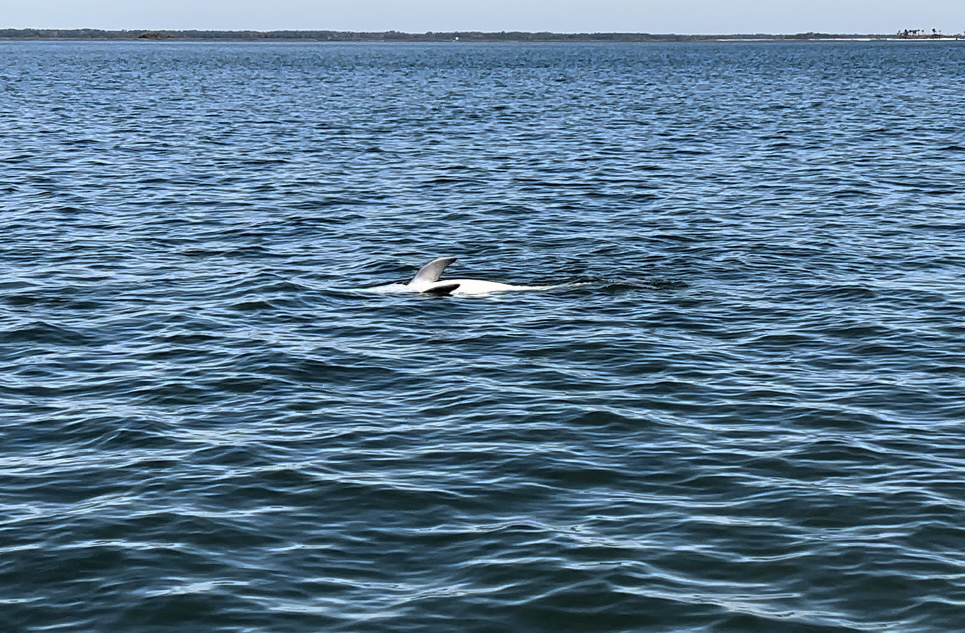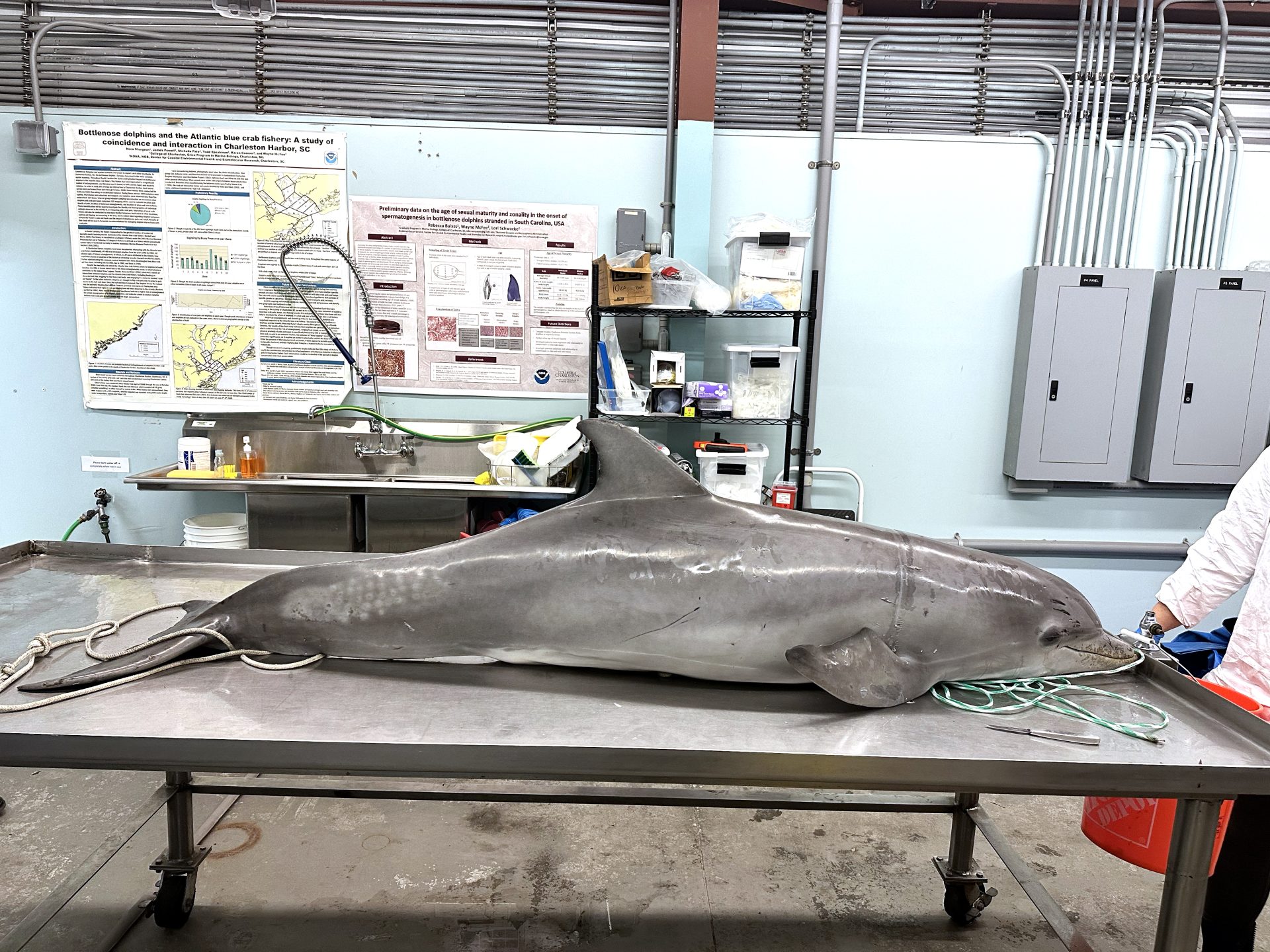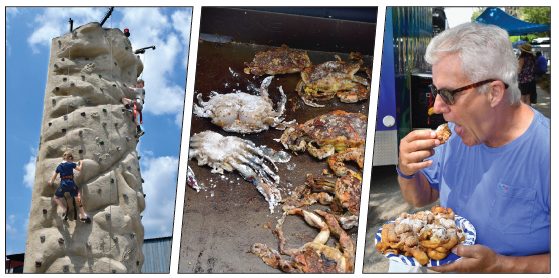By Delayna Earley
The Island News
A dead bottlenose dolphin found in Port Royal in early December appears to have died from a rare deformity.
The 6.5-foot-long subadult male dolphin was found by researchers from the University of South Carolina Beaufort (USCB) on Tuesday, Dec. 5 as they were photographing a pod of dolphins for one of their surveys.
The dolphin was located near the mouth of the Colleton River floating belly up.
A subadult dolphin is somewhere between 8 and 12 years old.
Alyssa Marian with USCB reported the dolphin to the Lowcountry Marine Mammal Network (LMMN) out of Charleston, S.C., which came to retrieve the body.
“This was the first time that I have come across a dead dolphin since I’ve been here,” Marian said. “It was just luck that we found him.”
Lauren Rust, state coordinator for the LMMN, along with Nicole Principe, Marine Mammal Stranding Technician, and volunteer Nora Futrell conducted a necropsy on the deceased animal and found that the dolphin had a whole fish lodged in its trachea.
Rust said that while it is not unheard of for a dolphin to choke on a fish that is too large, it is unusual to find a fish in the trachea – the pathway for air – instead of the esophagus – pathway for food.
Dolphins have an epiglottic spout or goose beak, which is a “cartilaginous structure supported by muscles and connective tissue” – like the epiglottis in humans – that helps to keep food and liquid from entering the lungs.
“Basically, it is similar to when we swallow something and it ‘goes down the wrong tube,’” said Rust.
During the necropsy, the dolphin’s goose beak was removed and examined and found to be deformed and necrotic.
Rust said that it was not clear the goose beak was deformed from birth or if the dolphin’s condition developed as the result of a virus or disease.
He was found with roughly 35 partially digested fish in his stomach, so Rust said it was apparent that he was still able to breathe and eat for some time.
The fish getting lodged in the trachea likely caused asphyxiation and the dolphin’s death.
It isn’t completely clear what type of fish killed the dolphin, but Rust thinks it is possibly a Southern Kingfish.
Rust said that while it is very sad anytime an animal dies, she was glad that this death was not human related, and it provided for an interesting case and educational experience.
“I’ve never seen anything like this,” Rust said about the condition of the dolphin.
The Lowcountry Marine Mammal Network responds to incidents involving stranded, injured or dead whales or dolphins in the Lowcountry.
If you come across one you can call the network at 800-922-5431.
Delayna Earley formerly worked as a photojournalist for The Island Packet/The Beaufort Gazette, as well as newspapers in Indiana and Virginia. She can be reached at delayna.theislandnews@gmail.com.

A 6.5-foot-long bottlenose dolphin was found dead in Port Royal with a whole fish lodged in its trachea on December 5. Photos courtesy of Lowcountry Marine Mammal Network











